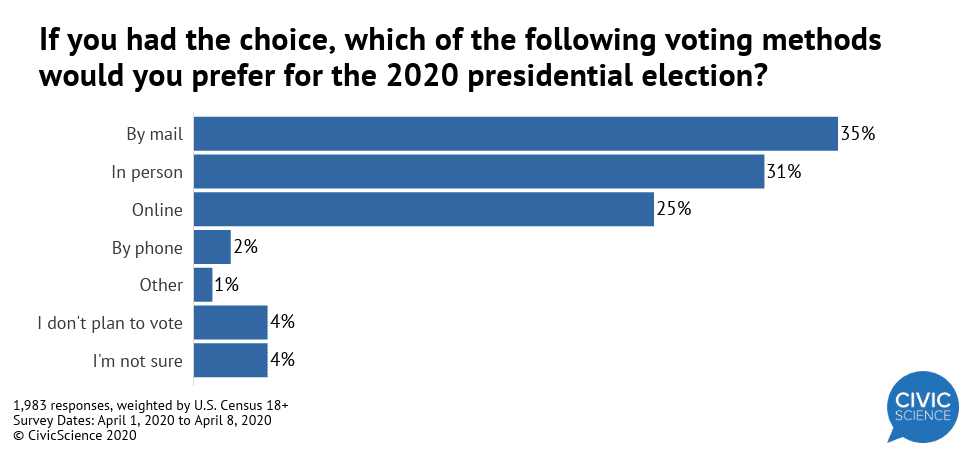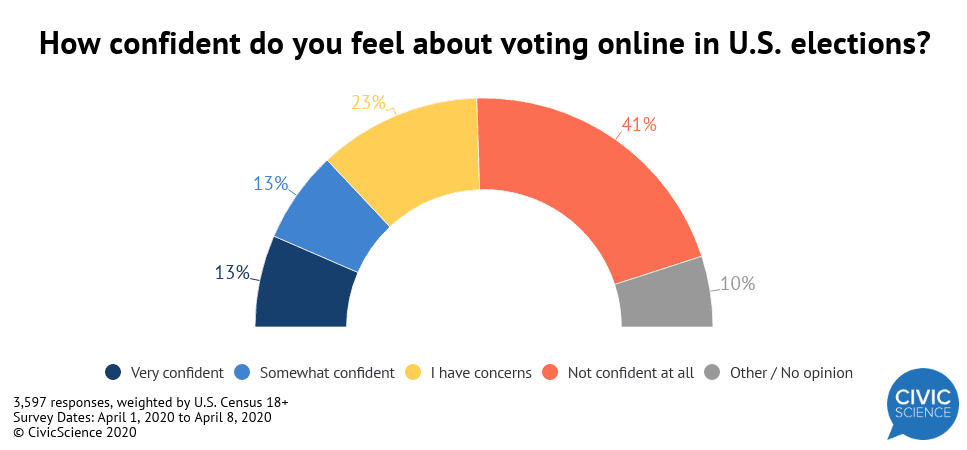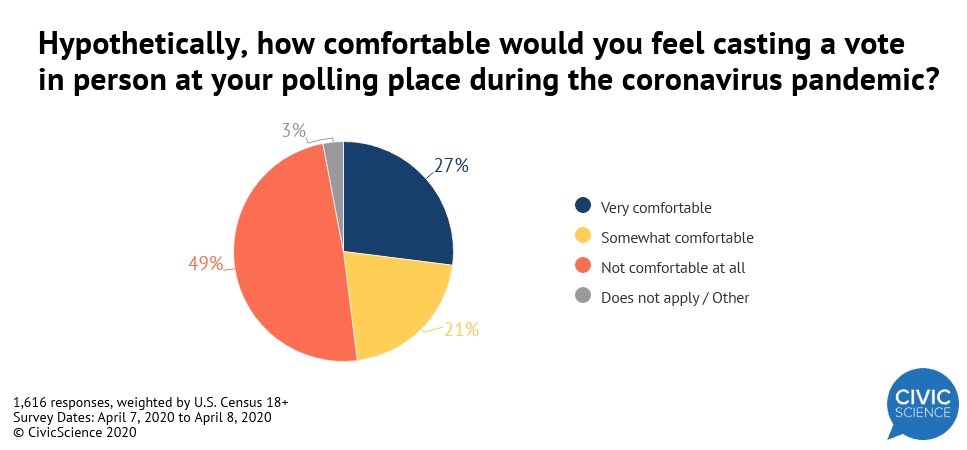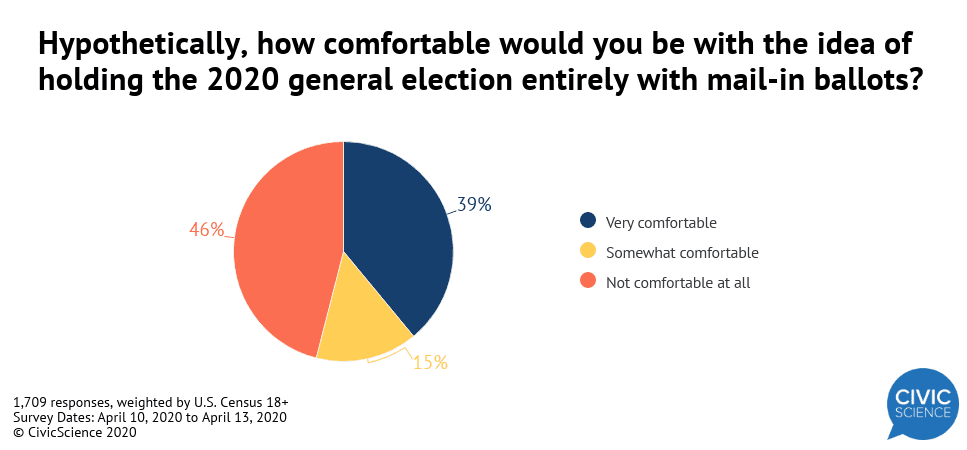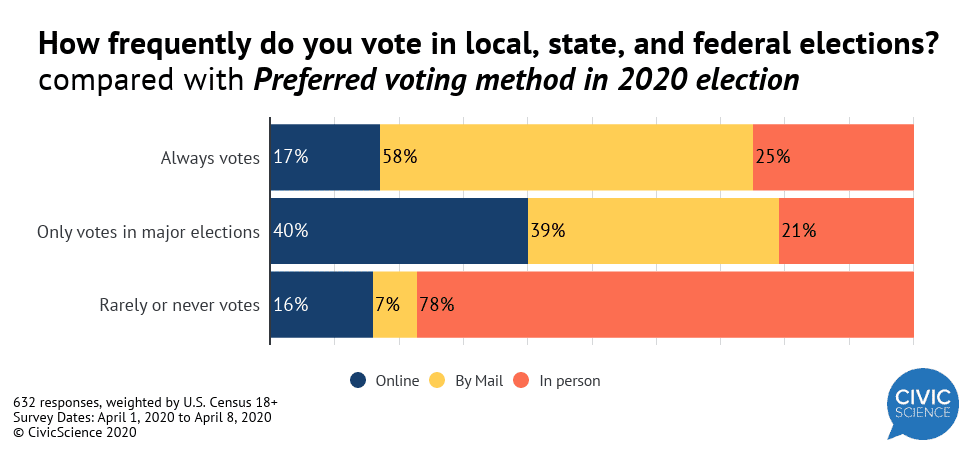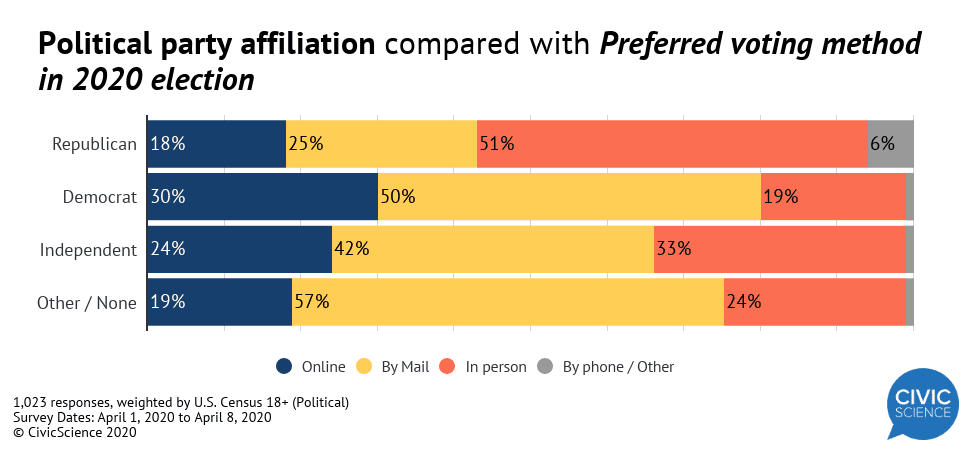The coronavirus pandemic has thrown a wrench into the ongoing, already-complicated civic discussions about voting in the U.S. — whether vote-by-mail efforts should be expanded, for instance, or whether states should allow voters to cast ballots online.
In a CivicScience survey of nearly 2,000 U.S. adults (age 18 and older) in early April, fewer than one-third of respondents (31%) said they would prefer to vote in person in the 2020 presidential election. A greater percentage said they would prefer to vote by mail (35%). A substantial portion (25%) said they would prefer to vote online if they had the choice, though online voting typically only applies to Americans abroad as of now.
In a separate CivicScience survey, only a statistically insignificant number of adults (2%) said the coronavirus pandemic would derail their plans for voting in this year’s general election. However, the election is still months away and voters’ feelings may change depending on how the pandemic plays out.
Most U.S. adults have low levels of confidence in online voting. Just more than a quarter of respondents said they feel “very” or “somewhat” confident in voting online (roughly matching the proportion who said they’d prefer to vote online this November). Forty-one percent said they are “not confident at all” in online voting, while an additional 23% “have concerns.”
On the other hand, about half of all American adults are “not comfortable at all” with the idea of going to their typical polling places during the pandemic. This could complicate matters in the event of a resurgence of coronavirus in the fall, or if the virus continues to spread straight through to November.
With many Americans reporting skepticism about online voting and plenty of others saying they’d be uncomfortable voting in person during the coronavirus pandemic, it’s fair to wonder whether voting by mail could be the magic bullet solution for the 2020 election. Unfortunately, nearly half of U.S. adults (46% overall) say they’d be “not at all comfortable” with the idea of the 2020 general election being held entirely by mail.
Interestingly, it’s those who vote the least often who are the most likely to prefer in-person voting. Meanwhile, those who say they “always” vote in local, state, and federal elections were most likely to prefer voting by mail. Nearly 4 out of 5 of those who vote “only in major elections” said they’d prefer one of the two remote options, split fairly evenly between online voting and snail-mail voting.
Republicans Mostly Prefer to Vote in Person; Democrats Mostly Prefer to Vote Remotely
One’s political party is a massive indicator of their preference for voting in person, by mail, or online. Democrats were twice as likely as Republicans to want to vote by mail, and 67% more likely to prefer to vote online. Meanwhile, Republicans were more than two-and-a-half times as likely as Democrats to prefer voting in person. Perhaps unsurprisingly, political Independents fell somewhere in the middle ground.
Youngest, Oldest Voters Favor In-Person Voting
Somewhat surprisingly, the age curve of those who prefer in-person voting for the 2020 presidential election is concave. Both the youngest (18 to 25) and oldest (55 and up) generational groups of voters showed stronger preference for in-person voting than the two age cohorts in between. The youngest and oldest age groups also held the two lowest preference levels for online voting. Meanwhile, preference for voting by mail increased steadily alongside age.
And while one might think younger generations would be more inclined to accept the idea of voting online, Millennials actually showed the least confidence in online voting — followed closely by Gen Z.
Women were more likely to prefer voting by mail or voting online than men, while men showed a stronger inclination toward voting in person.
With opinions on the matter split so profoundly, it will be interesting to see what state and federal leaders decide is the best course of action to keep voters safe while maintaining the integrity of U.S. elections amid the coronavirus outbreak. CivicScience will continue to monitor voters’ sentiment toward remote voting for the duration of the pandemic and beyond.
